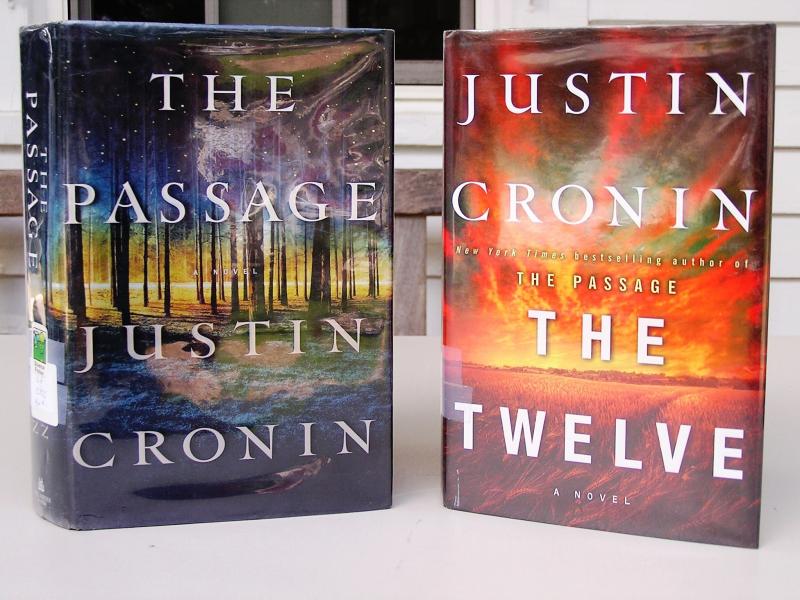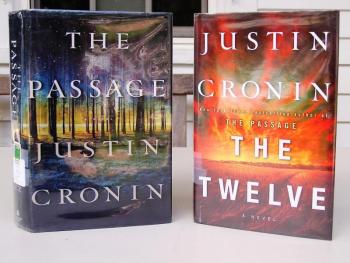A dystopian trilogy by Justin Cronin
Have you had enough of Twilight/zombie/vampire fare? Read no more.
Can’t get enough of the dystopian genre? Read on.
Actually, Justin Cronin’s trilogy (yes, we’re talking three sizable tomes here) doesn’t neatly fall into the zombie parade, and they’re written in a way that actually both entertains and successfully suspends credulity beyond what you would normally endure.
At least that’s how they’ve worked their magic on me.
The first volume, "The Passage," turns on a security failure at a secret military research facility in Colorado. The result changes the course of history.
The security breach manages to release 12 virally infected humans, known as Virals, who have been changed from ordinary humans into insatiable killing machines. They can live almost forever unless dispatched in a very particular way … you see the vampire idea here.
One very fortunate thing for the remaining survivors, and there aren’t a lot of them, is the sensitivity to light the infected suffer from. The flipside is they come out at night with a vengeance. Yikes.
Sounds hokey, I know, but if you’re willing to accept the wild premise, and shelve those high-brow glasses for a bit, Cronin’s gift as a writer will carry you along with characters so deftly developed you really care about them.
At the core of the story is Amy, a innocent little girl without a family, who is infected but not with the same result. In fact, she looks like the one person in the apocalyptic aftermath who just might save the human race.
What I found less alluring was the second volume, "The Twelve," specifically its structure, a not uncommon problem for a trilogy. "The Twelve" goes back in time from where "The Passage" left off, taking the reader to “Year Zero,” the year of the outbreak. This book develops more fully the events and characters leading up to the disaster.
It is useful in fleshing out some of the characters who had a hand in the outbreak of the virus, but acts as a bit of a break on the story’s forward movement, and reads a bit drawn out in spots.
The key survivor group has developed a theory they believe explains Viral behavior, and it leads them to a hellish Midwest outpost of human-Viral cooperation straight out of Steven King’s imagination. Let me just say, without giving away the plot’s conclusion: it’s beginning to look hopeful for the human team.
For those who like a good theatric tale and reflection on both the fallibility and courage of human nature, Cronin’s "The Passage" trilogy will be just the thing to cure a rainy day (or many of them).
The third volume is scheduled to be published in 2014.
Event Date
Address
United States
























